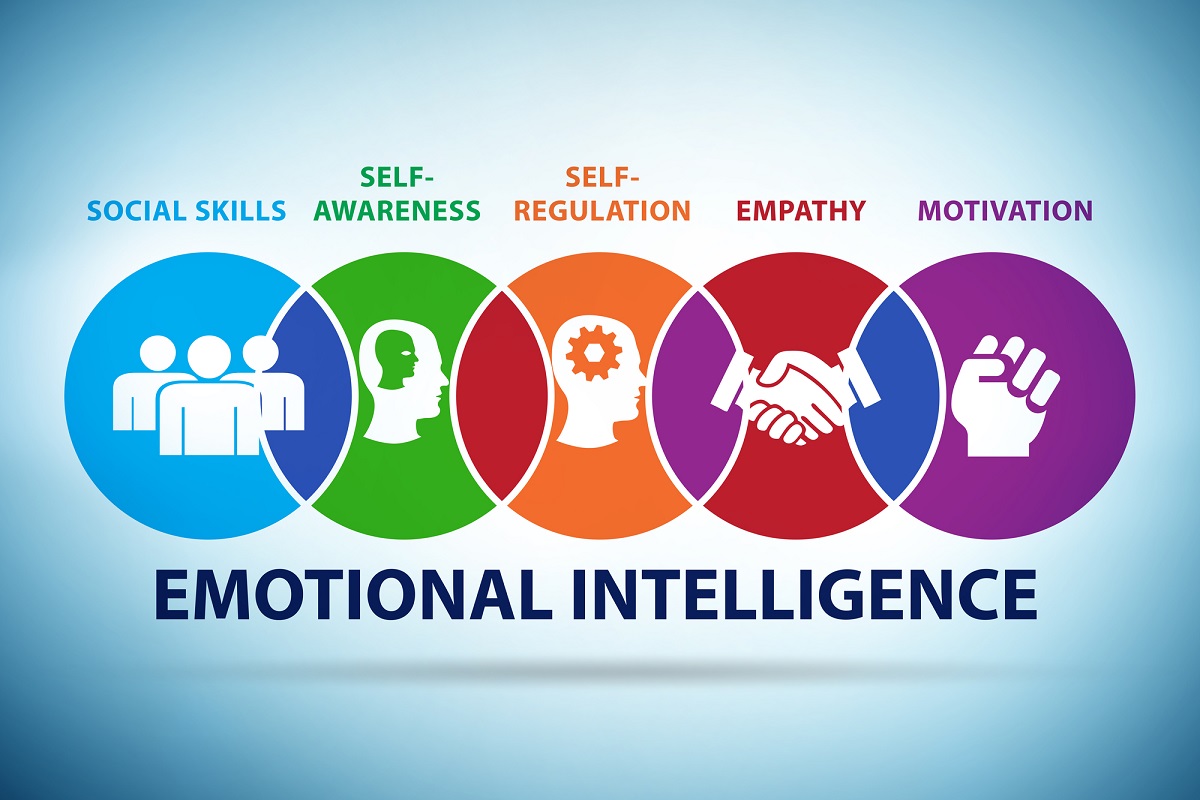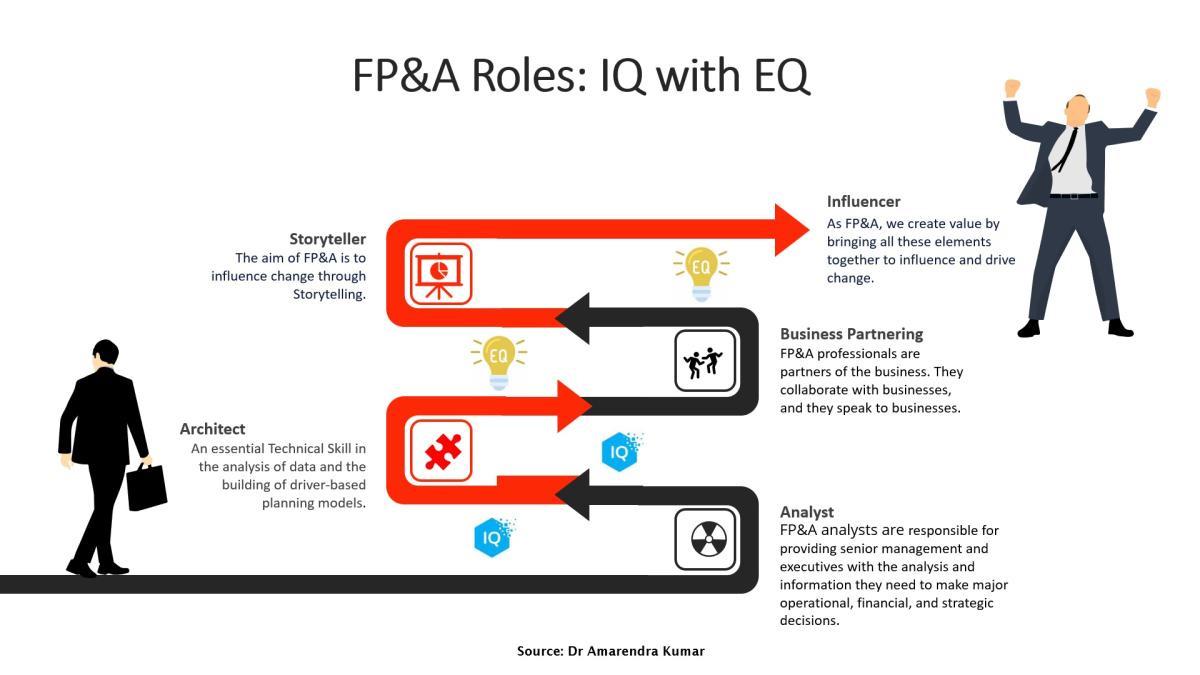In this series of 9 blogs, we will be looking at a number of areas...

In my previous blog, “The Essential Skill Set: What is the Role of FP&A?” I outlined some of the more technical skills (IQ) required for successful FP&A. Emotional Intelligence is another essential skill set to add to the list for effective FP&A Leadership.
What Is Emotional Intelligence?
What is emotional intelligence? It’s most often defined as the ability of individuals to recognise their own emotions and those of others and use that information to guide decisions and adjust their feelings to adapt to different environments.
A high IQ, coupled with strong emotional intelligence, is the perfect recipe for financial intelligence. Modern FP&A leaders embrace emotional intelligence to leverage better financial planning, decision-making, Business Partnering and team management. Emotions drive the human race, and while the world of FP&A is home to many analytical number crunchers, emotion is the fundamental factor influencing decision-making.
5 Factors of Emotional Intelligence in FP&A
Emotional intelligence (EI) is an essential component of powerful leadership. Cultivating EI at each stage of your organisation can reap rich rewards for you and your company, such as multiplied engagement and productivity and an aligned working culture of empathy and collaboration.
Emotional intelligence or emotional quotient (EQ) consists of five factors:
- knowing one’s emotions (self-awareness),
- managing emotions (self-regulating),
- driving to improve and achieve (motivation),
- recognising emotions in others (empathy),
- and handling relationships (social skills).
Organisations that intend to grow, remain profitable, and sustain high performance, should place a high value on developing the emotional intelligence of their leaders and managers. Leaders need to understand the emotional intelligence of their employees.
For example, FP&A professionals are often experts at number crunching (an IQ task) but less adept at presenting the story behind the numbers (an EQ task). Our Intellectual Quotient, or IQ, determines our level of reasoning and problem-solving abilities. On the other hand, emotional intelligence, or EQ, determines our ability to recognise, differentiate, and manage our emotions and the emotions of others. Increasingly, one of the most valued Roles in FP&A is turning data and facts into a story and putting these into context by applying emotional intelligence. EQ can enhance interactions and instil confidence among your audience.
FP&A roles can be successful in influencing change by:
- creating a compelling story using the correct facts (data),
- engaging stakeholders through clear communication (narrative),
- enlightening our audience using relevant visualisations of data (visuals).
The primary function of emotional intelligence in an FP&A Role is to bring intuitive and deliberate decision-making processes together. There’s a clear link between emotions and decision-making. The emotional centre of the brain is very close to the decision-making centre of the brain.

Figure 1: The Combination of IQ and EQ in FP&A Roles
Conclusions
As an FP&A professional, you need to be resilient, understand how you respond and react in different business situations, and have the confidence to influence your Business Partners to make important and strategic decisions. Being emotionally intelligent in your professional competencies will make you a successful finance business partner. Providing effective finance Business Partnering, however, is still proving to be a challenge for many businesses.
There are often capacity constraints at play, and FP&A professionals may not be recognised as having the business acumen or soft skills required to be strong influencers. EI has always been an essential skill for strong leadership. Understanding others’ motivations and the ability to gauge a situation are essential qualities of a good FP&A leader. However, in today’s environment, FP&A leaders are now also required to manage these relationships remotely and in person. For example, successfully chairing a meeting online requires a new and developed skillset. If you are looking to progress to a role with elements of leadership, it is vital that you develop your EI skills to the best of your ability.
Emotional intelligence may equip FP&A professionals to perform better in leadership, team building, business partnering and decision-making. Strengthening EQ and other soft skills will benefit FP&A professionals and their organisations by providing better leadership, more effective collaboration, and deeper empathy, helping to inform decision-making and meet organisational goals. With better analytical skills, technology, and effective Business Partnering capabilities, FP&A Storytellers can play a more significant and influential role.
Subscribe to
FP&A Trends Digest

We will regularly update you on the latest trends and developments in FP&A. Take the opportunity to have articles written by finance thought leaders delivered directly to your inbox; watch compelling webinars; connect with like-minded professionals; and become a part of our global community.





